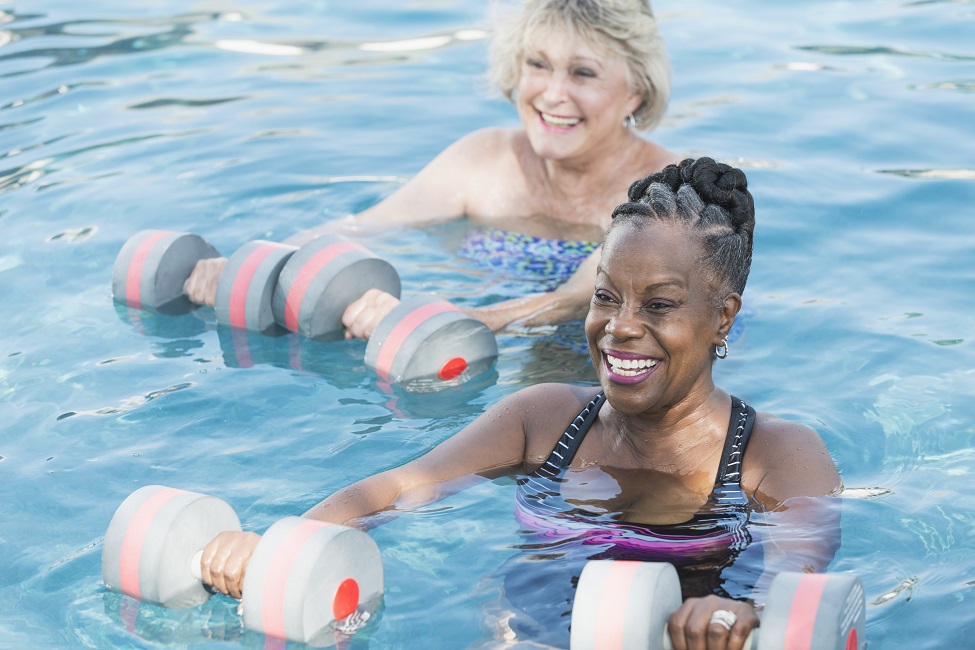Five Key Factors Affect Physical Activity in Multi-ethnic Older Adults

More mature grownups rarely fulfill the physical activity guidelines of 150 minutes for every week of moderate exercise.
Actual physical activity is significant for healthier aging. It aids prevent practical drop, frailty, falls, and serious disorders this kind of as diabetes and cardiovascular ailment. Common physical action also contributes to good quality of lifetime and reduced despair.
Even with these acknowledged wellbeing gains, more mature grown ups seldom meet up with the bodily activity suggestions of 150 minutes for each 7 days of moderate exercise. Several elements impact bodily action degrees between more mature grown ups. Furthermore, minor is identified about the variations in actual physical exercise amongst numerous racial and ethnic groups.
Scientists from Florida Atlantic University’s Christine E. Lynn Faculty of Nursing, in collaboration with Florida Global University, carried out a unique examine using a robust statistical strategy to evaluate the aspects relevant to physical action in a varied sample of older adults.
The analyze sample provided 601 African People in america, Afro-Caribbeans, European Individuals and Hispanic Us residents ages 59 to 96 residing independently. Whilst prior research have dealt with the issue of components influencing more mature adults’ actual physical exercise degrees, none have employed the substantial assortment of devices/applications used in this research or incorporated more mature adults from many ethnic teams.
Final results of the examine, posted in the journal
Geriatrics
, showed that age, schooling, social community, suffering and melancholy ended up the 5 things that accounted for a statistically substantial proportion of unique variance in physical action in this diverse, community dwelling older inhabitants.
Participants who documented decreased bodily activity tended to be older, have significantly less many years of education and reported reduced social engagement, networking, resilience, psychological well being, self-wellbeing rating, and increased levels of depression, anxiousness, ache, and human body mass index (BMI) in comparison to the reasonable to superior actual physical exercise teams.
A secondary analysis examined aspects related with calculated Satisfied-h/week (ratio of the rate at which a particular person expends energy relative to the mass of that man or woman). Findings confirmed the strongest correlation to Fulfilled-h/7 days was with melancholy.
“Four of the 5 considerable predictors of actual physical action in the more mature adults we studied are at the very least partially modifiable. For case in point, social network, despair and soreness can be ameliorated by actual physical activity,” reported Ruth M. Tappen, Ed.D., RN, FAAN, senior author and the Christine E. Lynn Eminent Scholar and professor in the Christine E. Lynn University of Nursing.
Scientists uncovered that agony was related with fewer time used getting bodily energetic. What is not crystal clear is whether more mature grown ups understand that sedentary lifestyles can boost and/or worsen some types of suffering and actual physical action can enable to decrease suffering or irrespective of whether this know-how on your own is enough to motivate them to come to be far more energetic.
“Education might be critical each in aiding more mature grownups with depressive signs and symptoms comprehend that physical exercise can assist lessen their signs or symptoms and in assisting them to detect the types of exercise that they may possibly discover pleasurable,” said Tappen.
Analyze results advise that many of these factors could be dealt with by planning and tests specific, group and community stage interventions to boost actual physical exercise in the more mature population. Researchers recommend instruction on the influence of exercise on widespread sources of pain these kinds of as arthritis or back soreness and encouraging health care companies to write a “prescription” for a daily stroll or a workout for all those with melancholy. In addition, neighborhood outreach to isolated more mature older people, improving the walkability of neighborhoods, fixing sidewalks, introducing trails and producing these spots secure to wander and do the job out are other interventions to aid raise actual physical action in the older inhabitants.
“Partnerships between area senior centers, lower cash flow housing developments, areas of worship, YMCAs and overall health treatment vendors are crucial in acquiring tailor-made multi-faceted programs for physically inactive more mature grownups, particularly people experiencing discomfort and/or melancholy,” said Tappen. “These applications can deliver health and fitness-associated training pertinent to the discovered healthcare problems this kind of as ache and depression and aid individuals in conference other individuals and in producing specific actual physical exercise-associated objectives, which are recognized to be involved with sustained involvement.”
Sociodemographic variables incorporated age, sex, years of instruction, ethnic team membership, years dwelling in the United States, and receipt of Medicaid centered upon money amount skills. Cognition was calculated working with the Mini-Mental State Exam. Psychosocial variables bundled social engagement, social community, resilience, character, stress, depression, spirituality and the SF-36 psychological wellbeing summary rating. Physical measures involved agony, BMI, overall body consciousness, practical means and self-rating of wellness. Behavioral variables incorporated adherence to prescribed medications and self-claimed physical activity concentrations.
Analyze co-authors are David Newman, Ph.D., an affiliate professor and statistician Sareen S. Gropper, Ph.D., a professor and Cassandre Horne, a Ph.D. scholar, all in FAU’s Christine E. Lynn College or university of Nursing and Edgar R. Viera, Ph.D., an affiliate professor in FIU’s Nicole Wertheim Higher education of Nursing & Overall health Science.
This study was funded by the Health and fitness Growing older Analysis Initiative (HARI), FAU sponsored courses (#N11-053) and the Retirement Study Basis (Grant #180250).
-FAU-
